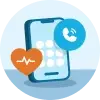Support for Drug Addiction at The Haven Detox

Dr. Rostislav Ignatov, MD
Chief Medical Officer
Understanding Drug Addiction
Drug abuse can have a significant impact on your life, often in ways you may not realize. Whether it’s alcohol, prescription medications, or illegal drugs, excessive use can lead to serious consequences. What might start as occasional use to cope with stress can quickly escalate, making it harder to stop.
In 2023, more than 48.5 million Americans aged 12 and older struggled with substance use, which represents about 17.1% of the population. Despite how common this issue is, many people don’t receive the help they need. Recognizing the impact it’s having on your life is the first step toward getting the support you deserve.
Commonly Abused Drugs
Substance abuse comes in many forms, with different drugs impacting the body and mind in various ways. Prescription medications, over-the-counter products, and illicit substances all carry risks when misused.
- Alcohol: Widely used, but excessive consumption can impair judgment reflexes and lead to health issues like liver disease and addiction.
- Prescription Medications: Painkillers (like oxycodone and hydrocodone) and benzodiazepines are often misused, leading to dependence, overdose, and serious health risks.
- Cocaine: A powerful stimulant that increases heart rate and energy but can cause heart problems, anxiety, and long-term brain damage.
- Heroin: An opioid that produces intense euphoria, but it comes with a high risk of overdose, respiratory issues, and addiction.
- Methamphetamine (Meth): A strong stimulant that causes extreme energy, but leads to severe side effects like dental issues, paranoia, and brain damage over time.
Signs of Drug Abuse
Drug abuse can be difficult to spot, especially in the early stages, but there are still many general signs to look for. These symptoms can affect a person’s behavior, health, and relationships.
Unexplained weight changes
Bloodshot or dilated eyes
Poor hygiene or grooming
Mood swings or irritability
Decreased motivation or responsibility
Risky or impulsive behaviors
Memory problems or difficulty concentrating
Increased secrecy or isolation
What You Don’t Know About Drugs Can Harm You
Read the content below to learn what’s safe, what’s not, and how to heal if substance use has taken control.

Heroin Addiction Heroin addiction is a severe health issue in the United States. It occurs when individuals regularly use heroin, a

Other Categories Mental Health Treatment Alcohol Use Recovery What Heroin Is Cut With: Common Additives and the Dangers They Pose
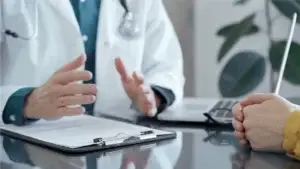
Boofing is a method of substance use that is not often talked about but carries real risks that deserve attention.

What Does Meth Look Like Overview Of Meth Methamphetamine, commonly known as meth, belongs to a class of drugs known

Other Categories Mental Health Treatment Alcohol Use Recovery Blue Meth: The Reality Behind the Hype and the Dangers of Addiction

How Cocaine became what it is today Cocaine is a powerful stimulant derived from the coca plant, native to South

Adolescence is a critical period of brain development characterized by heightened impulsivity, risk-taking behavior, and prone to peer influence. This

Suboxone, a medication commonly used for opioid addiction treatment, has shown potential benefits in managing benzodiazepine (benzo) addiction. Suboxone, which

Other Categories Mental Health Treatment Alcohol Use Recovery Suboxone, a medication used to treat opioid dependence, can bring relief to individuals

What are Barbiturates Barbiturates are a class of central nervous system (CNS) depressants prescribed for medical purposes to slow down

Meth Use Over Time: A Brief History Methamphetamine, or crystal meth, has a history marked by its various uses, both

Overcome Crack Cocaine Addiction: Signs, Dangers, and Proven Treatment Options Crack cocaine is a fast-acting stimulant drug that delivers a

Introduction To Ketamine Ketamine is primarily used in hospitals for pain relief and anesthesia during surgeries. Besides its anesthetic properties, it’s

Meth Explained Methamphetamine, commonly known as “meth,” is a powerful synthetic central nervous system stimulant with high addictive potential. This

What Is Meth? “Meth” typically refers to methamphetamine, a powerful and highly addictive central nervous system stimulant. It is classified

How Meth Metabolizes Methamphetamine, also referred to as crystal meth, is a strong substance that affects people differently. When a person uses
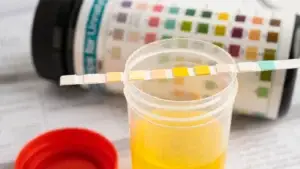
Introduction To Methamphetamines Methamphetamines, commonly known as meth or crystal meth, are highly stimulant drugs that affect the central nervous

Heroin And Its Prevalence Heroin is a powerful and highly addictive substance extracted from the seed pod of certain varieties

Suboxone, a medication primarily used to treat opioid addiction, is being explored for its potential benefits in treating crack cocaine
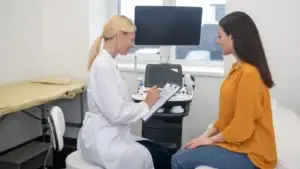
How Opioids Metabolize Opioids, when introduced into the human body, undergo a complex process of metabolism. Metabolism refers to the

Introduction To Heroin Teeth “Heroin teeth” refers to the severe dental damage caused by heroin use. This includes tooth decay, gum

Other Categories Mental Health Treatment Alcohol Use Recovery Can Suboxone Help Treat Meth Addiction? Exploring Its Potential and Limitations Suboxone,
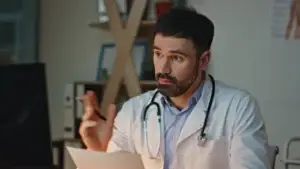
Mixing both alcohol and barbiturates can increase sedation and pose severe risks, The Haven Detox can help you overcome this

Benzodiazepines Explained Benzodiazepines, commonly known as benzos, are a class of prescription medications used to treat conditions like anxiety, insomnia, and

Rise of Meth Use in The United States The prevalence of methamphetamine use is concerning, with 0.9 percent of people

Benzodiazepines: An Overview Benzodiazepines, commonly known as “benzos,” are calming to the central nervous system. These medications are widely prescribed

What are Benzos? Benzodiazepines, generally known as benzos, exert a calming effect on the central nervous system. They are most

Benzodiazepines are widely prescribed medications used to treat anxiety, panic disorders, seizures, and insomnia. While effective for short-term relief, they

A Closer Look at Barbiturates Barbiturates, such as phenobarbital and secobarbital, are medications doctors prescribe to treat various conditions. These

What Is Methamphetamine Methamphetamine, or meth, is a powerful stimulant drug that belongs to the amphetamine class. It affects the
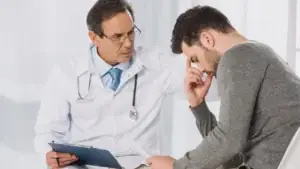
Other Categories Alcohol Use Mental Health Treatment Recovery The State of Addiction: 2025 Substance addiction remains a major public health

Discover the dangers of Black Ice, a toxic street-made meth. Learn how it’s used, its harmful effects, and how to

Benzodiazepines: An Overview Benzodiazepines, commonly known as benzos, are medications used to treat anxiety, insomnia, seizures, muscle relaxation, and alcohol
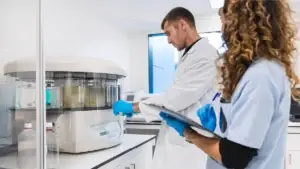
Introduction To Methamphetamine Methamphetamine, often called meth, is a powerful drug that affects the brain and body. It comes in
Drug Detox & Treatment Centers
When chronic drug use is involved, detoxing alone can be dangerous. Withdrawing from substances like opioids, benzodiazepines, or meth without medical support can lead to severe symptoms or complications.
Medical detox is safer, more comfortable, and sets the foundation for lasting recovery — so you never have to go through withdrawal alone.
Get answers about your cost / coverage now.
Your information will be kept private
Have Questions? Let’s Talk!
24/7 Support
No Commitment
100% Private








